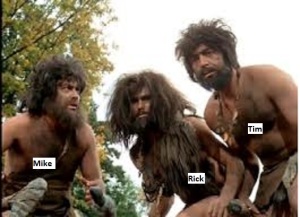I understand there are a lot there who get confused about what is helping verb or main verb or what function does each have in a sentence. This is basically the equation: Helping Verb + Main Verb = Verb Phrase
VERB PHRASE = is composed of two or more words (helping verb + main verb) in a sentence that basically has a single function which is as VERB.
Examples:
(Verb) Carl walks to work everyday.
(Verb Phrase) Carl is walking to work right now.
(Verb) I waited for you last night.
(Verb Phrase) I have been waiting for you all night.
(Verb) Mary studied this book yesterday.
(Verb Phrase) Mary has been studying this book for the entire month.
MAIN VERB
For example: The students must submit their homework by the end of the class.
**In this example, the word submit is the main verb because it expresses the main action in the sentence while must submit is our verb phrase.
Notes:
1.) The main verb expresses the main action in the sentence.
2.) All main verbs are either action verbs or linking verbs.
3.) Main verbs are also called by other grammarians as Lexical verbs.
4.) The main verbs in the sentence may be of different forms depending on the helping verb(s) before it.
HELPING VERB
For example: The student in the class is drawing while listening to her teacher.
**In this example, the word is is the helping verb because it helps the main verb express the time or the tense of the action. It indicates that the action is in the present time.
Let’s have another example: The student in the class was drawing while listening to her teacher.
** Notice how the tense of the sentence changed when we used was instead of is in the verb phrase.
For the idea of necessity, here is the example: All the employees must wear their identification cards before entering the building.
For possibility: The workers may finish the job next week.
Permission: May I borrow the book that you just bought last night?
**Notice that verb phrases may be split when used in asking questions.
For example: Where will you go after this event?
Notes:
1.) Helping verbs are words that help the main verbs express the time or the tense of the action being expressed in the sentence.
2.) Helping verbs are also known as auxiliary verbs.
3.) Helping verbs may also express ideas such as possibility, necessity and permission.
4.) The main helping verbs in English are: be (am/is/are), have, do, can, could, may, might, shall, should, will, would and must.






